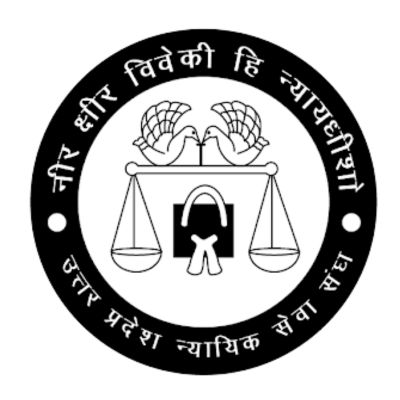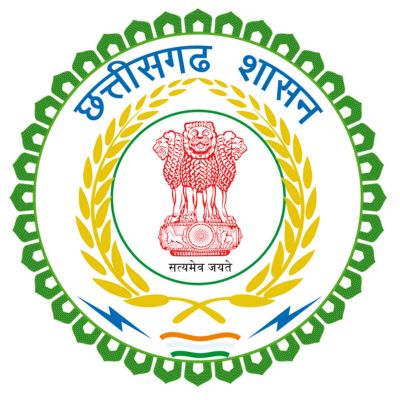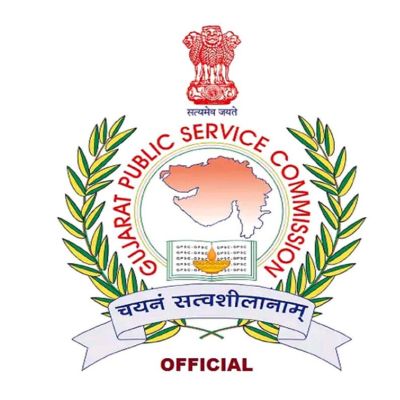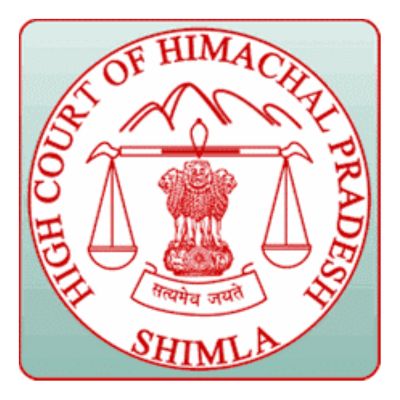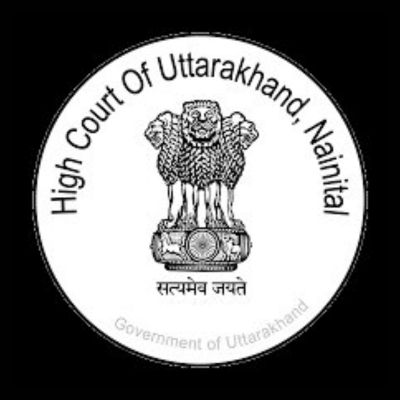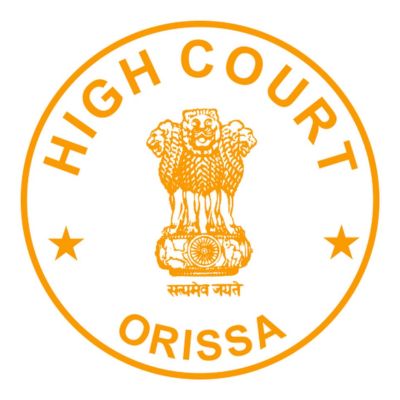All-States Judiciary Exams Syllabus 2025 (With PDF)
Preparing for the judiciary exams can be challenging, especially when each state has its own specific syllabus. To help you with it, we have covered the detailed and easy-to-understand overview of the state-wise judiciary exams syllabus for 2025.
Whether you're looking for the judicial exam syllabus of all states or need to download the syllabus in PDF format, we have got you covered. This guide will help you know what to study and how to prepare effectively for the judiciary exams across different states in India.
Book Free Counselling for Judiciary Preparation!
Get a callback and ask anything about judiciary exams: preparation, syllabus, scholarship, etc.
Judiciary Syllabus of All States (PDF)
Preparing for Judiciary? Book free counselling!
Take the first step towards your judiciary dream. With our proven methods and dedicated support, you can achieve top ranks.
Subjects in Judiciary Exams Syllabus
Here’s a list of common subjects included in the Judiciary syllabus across most states:
Category | Subjects |
General Knowledge | General Awareness |
Language and Aptitude | English Language |
Aptitude Test | |
Core Law Subjects | Constitutional Law |
Indian Penal Code (IPC) | |
Code of Criminal Procedure (CrPC) | |
Indian Evidence Act | |
Civil Procedure Code (CPC) | |
Indian Contract Act | |
Transfer of Property Act | |
Law of Torts | |
State-Specific Subjects | Local Laws (varies by state) |
Must Check: UP Judiciary Vacancy 2024
Judiciary Exam Syllabus 2025 (Prelims)
Here is the syllabus for the Judiciary Prelims Exam, divided into specific subjects:
Subject | Topics Covered |
General Knowledge | – Current Affairs (National and International) – Indian History and Culture – Indian Polity and Economy – Geography – Science and Technology – Important Dates and Events |
Proficiency in English Language and Aptitude | – Vocabulary (Synonyms, Antonyms) – Grammar (Tenses, Prepositions, Articles) – Comprehension (Passage-based Questions) – Sentence Correction – Logical Reasoning and Analytical Ability – Basic Numerical Ability (Percentages, Ratios, Simple Interest) |
Constitutional Law | – Preamble, Fundamental Rights, Duties – Directive Principles of State Policy – Union and State Legislature and Executive – Judiciary in India (Supreme Court, High Courts) – Amendment Procedures – Constitutional Bodies (CAG, Election Commission, etc.) |
Criminal Law | – Indian Penal Code (IPC): General Principles, Offenses Against Body, Property – Code of Criminal Procedure (CrPC): Investigation, Arrest, Bail, Trial Procedures – Prevention of Corruption Act – Indian Evidence Act (Relevant Sections) |
Contract Law and Tort Law | – Indian Contract Act: Formation, Performance, Breach of Contracts – Specific Relief Act – Law of Torts: Negligence, Nuisance, Defamation, Liability |
Transfer of Property Law | – Sale, Mortgage, Lease of Property – Gift and Exchange of Property – Easements and Licenses – Transfer by Ostensible Owner |
Indian Evidence Act | – Relevancy of Facts – Admissions and Confessions – Dying Declarations – Examination and Cross-examination of Witnesses – Burden of Proof and Presumptions |
Law of Torts | – General Principles of Tortious Liability – Negligence, Nuisance, and Defamation – Strict and Absolute Liability – Remedies for Torts (Damages, Injunctions) |
Get up to 100% Scholarship for Judiciary Coaching!
Recommended Preparation Resources for You:
Judiciary Exam Syllabus 2025 (Mains)
Here’s the syllabus for the Judiciary Mains Exam presented in tabular form:
Paper | Subject | Topics Covered |
Paper I | Essay, Precise Writing, Grammar | – Essay Writing: Topics on law, current affairs, social issues. – Precise Writing: Summarizing passages. – Grammar: Sentence correction, tenses, prepositions, punctuation. |
Paper II | Objective Test, Aptitude Test | – Objective Test: Legal knowledge, current affairs, reasoning. – Aptitude Test: Logical reasoning, quantitative aptitude, analytical skills. |
Paper III | Transfer of Property, Civil Procedure Code, Indian Contract Act, Constitution of India | – Transfer of Property Act: Sale, mortgage, lease, gift, exchange. – Civil Procedure Code (CPC): Jurisdiction, pleadings, trials, judgments. – Indian Contract Act: Offer, acceptance, consideration, breach. – Constitution of India: Fundamental rights, government structure, judiciary. |
Paper IV | Indian Penal Code (IPC), Code of Criminal Procedure (CrPC), Law of Torts, Indian Evidence Act | – Indian Penal Code (IPC): Offenses against body, property, state. – Criminal Procedure Code (CrPC): Arrest, bail, trial procedures. – Law of Torts: Negligence, nuisance, defamation, liability. – Indian Evidence Act: Relevancy, admissibility, burden of proof, witnesses. |
Importance of Knowing Judiciary Syllabus 2025
Clear Understanding of Exam Scope
Knowing the syllabus of judiciary exams helps candidates understand the topics and subjects they need to study.
Efficient Study Planning
A clear syllabus of civil judge exams allows for effective time management and focused preparation on key areas.
Avoiding Wastage of Time
Sticking to the judiciary syllabus of all states ensures candidates don't waste time on irrelevant topics.
Better Performance in Exams
Knowing the syllabus of judiciary exams helps candidates understand the topics and subjects they need to study.
Confidence in Preparation
Understanding the syllabus boosts confidence, knowing that all essential topics are covered in the study plan.
How to Prepare for All States Judiciary Syllabus?
1. Understand State-Wise Judiciary Syllabus
Begin by thoroughly reviewing the state-wise judiciary syllabus. Each state may have variations, so understanding the specific requirements is crucial for focused preparation.
2. Create a Comprehensive Study Plan
Design a study plan that covers the entire judiciary syllabus for all states. Allocate time effectively to each subject based on its weightage and difficulty level.
3. Enroll in the Best Judiciary Coaching
Joining the best judiciary coaching in India can provide expert guidance, structured study material, and mock tests that align with the 2025 syllabus, enhancing your preparation.
4. Regularly Practice Previous Years' Papers
Practicing previous years' question papers helps familiarize you with the exam pattern and the type of questions based on the state-wise judiciary syllabus.
5. Focus on Weak Areas
Identify and concentrate on subjects or topics where you are weak. Use the detailed judiciary syllabus of all states to ensure no topic is left uncovered.
6. Stay Updated with Current Affairs
Current affairs are a significant part of the judiciary exams. Keep yourself updated with national and international news, as they are often included in the syllabus.
7. Revise Regularly
Regular revision of all states' judiciary syllabus is essential. Revisit key concepts, legal provisions, and landmark judgments to retain information effectively.
8. Take Mock Tests Frequently
Regular mock tests, designed according to the judiciary syllabus for all states, help in self-assessment and improve time management skills for the actual exam.
9. Stay Healthy and Manage Stress
Maintaining good health and managing stress is vital during preparation. A healthy mind and body ensure better focus and productivity while studying.
What is Judiciary Exam?
The Judiciary Exam is a competitive exam conducted by various state governments in India to select qualified candidates for judicial positions in the courts. These exams are primarily designed to appoint judges at different levels, such as Civil Judges (lower judiciary) and District Judges (higher judiciary).
Purpose of Judiciary Exams
The main purpose of the Judiciary Exam is to ensure that the judiciary has competent, knowledgeable, and ethical individuals who can uphold the rule of law and deliver justice fairly.
The exam tests a candidate’s understanding of legal principles, their ability to apply the law to real-world situations, and their overall suitability for a judicial role. By passing this exam, candidates demonstrate their readiness to take on the responsibilities of a judge, ensuring that the legal system functions effectively and justly.
Types of Judiciary Exams
Judiciary exams in India are broadly categorized into two types, based on the level of judiciary they cater to:
1. Lower Judiciary Exam (Civil Judge)
The Lower Judiciary Exam is for individuals who are fresh law graduates or practicing lawyers with a few years of experience. This exam is the gateway to becoming a Civil Judge or Judicial Magistrate in district courts.
The role involves handling civil and criminal cases at the first level of the judiciary. The syllabus for civil judge exams typically includes subjects like the Indian Penal Code, Civil Procedure Code, Criminal Procedure Code, and other relevant laws.
2. Higher Judiciary Exam (District Judge)
The Higher Judiciary Exam is intended for experienced lawyers who usually have at least seven years of practice. This exam is for those who wish to become District Judges, who are the highest judicial officers in district courts.
The position involves overseeing the functioning of lower courts within the district, as well as adjudicating appeals from these courts. The syllabus of judiciary exams for this level is more advanced and includes a deeper understanding of law, legal principles, and procedures.
List of Judiciary Exams in India
Below is the list of some of the key judiciary exams conducted across various states in India:
- Delhi Judicial Services Exam
- Rajasthan Judicial Services Exam (RJS)
- Uttar Pradesh Judicial Services Exam (UP PCS-J)
- Madhya Pradesh Judicial Services Exam (MP PCS-J)
- Bihar Judicial Services Exam (Bihar PCS-J)
- Maharashtra Judicial Services Exam
- Haryana Judicial Services Exam
- Gujarat Judicial Services Exam
- West Bengal Judicial Services Exam
- Tamil Nadu Judicial Services Exam
Judiciary Exam Selection Process
The selection process for judiciary exams, specifically for Civil Judge positions, follows a multi-stage procedure.
1. Prelims Exam
- Objective Type Questions: The preliminary exam is an objective-type test with multiple-choice questions.
- Screening Test: This stage acts as a screening test to shortlist candidates for the mains examination.
- Qualifying Nature: The marks obtained in the prelims are not counted towards the final selection but are necessary to advance to the next stage.
2. Mains Exam
- Descriptive Type Questions: The mains exam consists of descriptive questions where candidates need to write detailed answers.
- Subjective Evaluation: It covers various law subjects in detail, including procedural and substantive laws, and sometimes a language paper.
- State-Specific Laws: In addition to common law subjects, candidates may also be tested on state-specific laws.
- Marks Consideration: The marks scored in the mains exam are crucial as they are considered in the final merit list.
3. Personal Interview (Viva-Voce)
- Assessment of Personality and Knowledge: Candidates who clear the mains examination are called for an interview, where they are assessed on their personality, legal acumen, ethical values, and suitability for a judicial role.
- Final Selection: The interview carries significant weight in the final selection process, often combined with the mains exam marks.
FAQs About Judicial Exams Sylllabus
What is the state judiciary exam syllabus?
The state judiciary exam syllabus covers subjects like Constitutional Law, Criminal Law, Civil Procedure, Contract Law, and General Knowledge, varying slightly by state.
How many exams are there in judiciary?
The judiciary selection process includes three stages: Preliminary Exam, Mains Exam, and a Personal Interview.
Is the judiciary exam conducted every year?
Most states conduct judiciary exams annually, but the exact schedule can vary depending on the state.
How difficult is the judiciary exam?
The judiciary exam is considered challenging due to the vast syllabus and the depth of knowledge required in both law and general studies.
What subjects are included in the civil judge syllabus?
The civil judge syllabus includes Constitutional Law, Indian Penal Code, Criminal Procedure Code, Civil Procedure Code, Contract Law, Tort Law, and General Knowledge.
Can the judiciary syllabus state wise vary?
Yes, the judiciary syllabus can vary from state to state, with some states including local laws and regional language papers.
Where can I find the judiciary syllabus of all states?
You can find the judiciary syllabus of all states on the Law Prep Judiciary website or official websites of the respective state judiciary or public service commissions.
Are local laws part of the judiciary syllabus state wise?
Yes, some states include local laws specific to the region as part of the judiciary syllabus.
Do I need to study General Knowledge for the judiciary exam syllabus?
Yes, General Knowledge is a crucial part of the judiciary syllabus, often included in both prelims and mains exams.
Can I choose my subjects for the judiciary mains exam?
No, the subjects for the judiciary mains exam are predetermined, and candidates must prepare according to the prescribed syllabus.
Are previous years’ question papers useful for judiciary exam preparation?
Yes, practicing previous years’ question papers is highly beneficial as it helps in understanding the exam pattern and frequently asked questions.
Can I appear for judiciary exams in multiple states?
Yes, you can appear for judiciary exams in multiple states, provided you meet the eligibility criteria for each state.
How often is the judiciary syllabus updated?
The judiciary syllabus is updated occasionally to reflect changes in law and to include current legal developments.
Do all states follow the same judiciary syllabus?
No, while many subjects overlap, the judiciary syllabus can differ significantly between states, especially concerning local laws.
Recommended Resources for You:
Book Free Counselling for Judiciary Exams Prep!
Get All Your Judiciary Queries Answered for Free!




